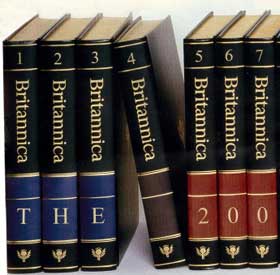“In theory, Wikipedia is a beautiful thing - it has to be a beautiful thing if the Web is leading us to a higher consciousness. In reality, though, Wikipedia isn't very good at all. Certainly, it's useful - I regularly consult it to get a quick gloss on a subject. But at a factual level it's unreliable, and the writing is often appalling. I wouldn't depend on it as a source, and I certainly wouldn't recommend it to a student writing a research paper.”-Nicholas Carr
As students, how many times have we heard, “do not use Wikipedia as a source.” I touched on this sense of “old school” research methods in my previous blog. What happened to the days of Encyclopedia Britannica? I completely agree with Carr in that Wikipedia is a dangerous form of collaboration. It is not written or maintained by scholars, and is surely not a reliable source. Sure it’s progression from Web 1.0, but collaboration is not always the best means. The only way I would trust internet collaboration involving research is through scholarly materials. I do not celebrate the amateur, but embrace the professional. I am from the belief, that if you want something done right, do it yourself. That, or avoid collaboration at all costs. Scholars and professionals are out of work because anyone with basic knowledge of a topic can present information. It is truly unfortunate.
Years ago, in order to organize there were only grass root forms of communication such as; word of mouth, land line phones, and paper flyers. Now, a demonstration in Egypt can be organized through social networks, cell phones, email, and text messages. For example, a Facebook status update stating “meeting in Tahrir Square,” can go viral in a matter of minutes. The process of information moves a lot faster with the available technology. From the aspect of media this is a slippery slope. With cell phones, video cameras Twitter (and the list goes on) the common citizen becomes the next Walker Cronkite. This is great in that we do not have to wait for updates or breaking news, but it puts the fate of media in jeopardy. We are not moving toward the extinction of network news. Why would I watch CNN, when videos, blogs, and tweets are updated every 30 seconds? This relates back to Carr’s statement in that we celebrate the amateur instead of trusting the professional.

ALthough Wikipedia may not be a reliable source becauase it was not written by scholars, I beleive that it is a good colaboration site because it is written by people in the world that my have first hand experience with a certain topic. Yes, it may not be appropriate for a research papaer, but for background, quick information on a subject it is easy to read.
ReplyDeleteNice article. Interesting points.